- Home
- Kathryn Lasky
The Journey Page 2
The Journey Read online
Page 2
“That was hardly a party, what happened up there in the sky, ma’am,” Twilight said hotly.
“Well, now tell me, young’uns,” said the male as if he was desperately trying to change the subject. “Where are you heading? What are your plans?”
“We’re going to Hoolemere and the Great Ga’Hoole Tree,” Soren said.
“Oh, how interesting,” the female replied in a voice that had a sneer embedded in it.
“Oh, Mummy,” said the young owlet. “That’s the place I was telling you about. Can’t we go?”
“Nonsense. You know how we feel about make-believe.”
The little owlet dipped his head in embarrassment.
“It’s not make-believe,” said Gylfie.
“Oh, you can’t be serious, young’un,” said the male. “It’s just a story, an old legend.”
“Let me tell you something,” said the female, who Soren disliked more and more by the second. “It does not do any good to believe in things you cannot see, touch, or feel. It is a waste of time. From the look of your flight feathers’ development, not to mention your talons, it is apparent that you are either fly-aways or orphans. Why else would you be out cavorting about the skies at such dangerous hours of the morning? I think your parents would be ashamed of you. I can tell you have good breeding.” She looked directly at Soren and blinked.
Soren thought he might explode with anger. How did this owl know what his parents might think? How dare she suggest that she knew them so well that she knew they would be ashamed of him?
And then there was a small soft, hissing voice. “I am ashamed of anyone who has eyes and still cannot see.” It was Mrs. Plithiver. She slithered from the corner in the hollow. “But, of course, to see with two eyes is a very common thing.”
“What is she talking about?” said the male.
“What happened to the old days when servants served and were quiet? Imagine a nest-maid going on like this,” said the female.
“Oh, yes,” said Mrs. Plithiver. “And I shall go on a bit more, if you permit me.” She proceeded to arrange herself in a lovely coil and swung her head toward Soren.
“Of course, Mrs. Plithiver. Please go on,” Soren said.
“I am a blind snake, but who says I cannot see as much as you?” And then she swung her head sharply toward the female Masked Owl, who seemed startled, and it did appear indeed as if Mrs. Plithiver was looking directly at her with her two small eye dents. “Who says I cannot see? To see with eyes is so ordinary. I see with my whole body—my skin, my bones, the coiling of my spine. And between the slow beats of my very slow heart, I sense the world here and beyond. I know the Yonder. Oh, yes. I have known it even before I ever flew in it. But before that day did I say it did not exist? What a fool you would have called me, milady, had I said your sky does not exist because I cannot see it nor can I fly. And what a fool you are to believe that Hoolemere does not exist.”
“Well, I never!” gasped the Masked Owl. She looked at her mate in astonishment. “She called me a fool!”
But Mrs. Plithiver continued. “Sky does not exist merely in the wings of birds, an impulse in their feathers and blood and bone. Sky becomes the Yonder for all creatures if, indeed, they free their hearts and their brains to feel, to know in the deepest ways. And when the Yonder calls, it speaks to all of us, be it sky, be it Hoolemere, be it heaven or glaumora.” Glaumora was the special heaven where the souls of owls went. “So perhaps,” Mrs. Plithiver continued, “there are some who need to lose their eyes to discover their sight.” Mrs. P. nodded her head gracefully and slithered back into the corner. A stunned silence fell upon the hollow.
The four young owls waited until First Black to leave. “No more flying during light,” Mrs. Plithiver said as she coiled into Soren’s neck feathers. “Agreed?”
“Agreed,” the owls replied at once.
They were now skirting the edges of the Kingdom of Tyto, the kingdom from which Soren’s family came. Although he was as alert as ever and flying most skillfully, Mrs. Plithiver could sense a quietness in him. He did not join in the others’ flight chatter. She knew he must have been thinking of his parents, his lost family, and, in particular, his sister, Eglantine, whom he loved most dearly. The chances of finding any of them were almost zero, and she knew that Soren knew this, but still she could feel his pain. Yet he had not exactly described it as pain. He had once said to Mrs. P. shortly after they had been reunited that he had felt as if there were a hole in his gizzard, and that when he and Mrs. P. had found each other again, it was as if a little bit of the hole had been mended. But Mrs. P. knew that despite the patch she had provided there was still a hole.
When the first stars began to fade, they looked for a place to land and settle in before morning. It was Gylfie who spotted an old sycamore, silvery in this moonless night. The full moon had begun its dwenking many nights before, growing slimmer and slimmer until it dwenked and disappeared entirely, and there would not be a trace of it for another night or so until the newing began.
CHAPTER TWO
In the Company of Sooty Owls
Oh, yes, dear. I’ve heard of it, but you know they say it’s just a story, a legend.”
“Well, it’s not exactly that, Sweetums,” said the Sooty Owl’s mate.
The four owls had been warmly welcomed into the large and spacious hollow in the sycamore by a family of Sooty Owls. These two owls were much nicer than the Masked Owls. Indeed very, very nice and, Soren thought, very, very boring. They called each other by nicknames—Sweetums and Swatums. They never said a cross word. Everything was just perfect. The children had all grown up.
“Left the nest a year ago. Still nearby,” said Swatums, the male. “But who knows, Sweetums might come up with another clutch of eggs in the new breeding season. And if she doesn’t, well, we two are enough company for each other.” Then they began preening each other.
It seemed to Soren and Gylfie that they preened incessantly. They always had their beaks in each other’s feathers, except, of course, when they were hunting. And when they were hunting they were exceptional killers. It was as predators that these Sooty Owls became the most interesting. Sweetums and Swatums were simply deadly, and Soren had to admit he had never eaten so well. Twilight had told them to watch carefully, for Sooty Owls were among the rare owls that went after tree prey and not just ground prey.
So tonight they were all feasting on three of a type of opossum that they called sugar gliders. They were the sweetest things that any of the young band of owls had ever tasted. Maybe that was why the two Sooties called each other Sweetums and Swatums. They had simply eaten too many sweet things. Perhaps eating a steady diet of sugar gliders made an owl ooze with gooiness. Soren thought he was going to go stark raving yoicks if he had to listen to their gooey talk a moment longer, but luckily they were now, in their own boring way, discussing the Great Ga’Hoole Tree.
Sweetums was questioning her mate. “Well, what do you mean, Swatums, by ‘not exactly.’ Isn’t it either a legend or not? I mean, it’s not really real.”
“Well, Sweetums, some say it’s simply invisible.”
“What’s simple about being invisible?” Gylfie asked.
“Ohh, hooo-hooo.” The two Sooty Owls were convulsed in laughter. “Doesn’t she remind you of Tibby, Swa-tums?” Then there was more cooing and giggling and disgusting preening. Soren felt that Gylfie’s question was a perfectly sensible one. What, indeed, was simple about in-visibleness?
“Well, young’uns,” Swatums answered, “there is nothing simple. It’s just that it has been said that the Great Ga’Hoole Tree is invisible. That it grows on the island in the middle of a vast sea, a sea called Hoolemere that is nearly as wide as an ocean. A sea that is always wrapped in fog, an island feathered in blizzards, and a tree veiled in mist.”
“So,” said Twilight, “it’s not really invisible, it’s just bad weather.”
“Not exactly,” replied Swatums. Twilight cocked his head. “It seems t
hat for some the fog lifts, the blizzards stop, and the mist blows away.”
“For some?” asked Gylfie.
“For those who believe.” Swatums paused and then sniffed in disdain. “But do they say what? Believe in what? No. You see, that is the problem. Owls with fancy ideas—ridiculous! That’s how you get into trouble. Sweetums and I don’t believe in fancy ideas. Fancy ideas don’t keep the belly full and the gizzard grinding. Sugar gliders, plump rats, voles—that’s what counts.” Sweetums nodded and Swatums went over and began preening her for the millionth time that day.
Soren knew in that moment that even if he were starving to death, he would still find Sweetums and Swatums the most boring owls on Earth.
That late afternoon as they nestled in the hollow, waiting for First Black, Gylfie stirred sleepily. “You awake, Soren?”
“Yeah. I can’t wait to get to Hoolemere.”
“Me, neither. But I was wondering,” Gylfie said.
“Wondering what?”
“Do you think that Streak and Zan love each other as much as Sweetums and Swatums?” Streak and Zan were two Bald Eagles who had helped them in the desert when Digger had been attacked by the lieutenants from St. Aggie’s—the very ones who had earlier eaten Digger’s brother, Flick. The two eagles had seemed deeply devoted to each other. Yet Zan could not utter a sound. Her tongue had been torn out in battle.
What an interesting question, Soren thought. His own parents never preened each other as constantly as Sweetums and Swatums, and they hadn’t called each other gooey names, but he had never doubted their love for each other. “I don’t know,” he replied. “It’s hard thinking about mates. I mean, can you imagine ever having a mate or what he might be like?”
There was a long pause. “Honestly, no,” replied Gylfie.
They heard Twilight stir in his sleep.
“If I never taste another sugar glider it will be too soon.” Digger belched softly. “They keep repeating on me.”
The four owls had left at First Black and bid their farewells to the Sooties. They had now alighted on a tree limb with a good view down the valley. They were looking for a creek—any creek that could feed into a river that hopefully would be the River Hoole, which they could follow to the Sea of Hoolemere.
“What do you mean ‘keep repeating on you’?” Soren said, imagining little possums gliding in and out of Digger’s beak.
“Just an expression. My dad used to say that after he ate centipedes.” Digger sighed. “And then Ma would say, ‘Well, of course they keep repeating on you, dear. You eat something that has all those legs, they’re probably still running around inside you.’”
Gylfie, Twilight, and Soren burst out laughing.
Digger sighed again. “My mom was really funny. I miss her jokes.”
“Come on,” said Gylfie. “You’ll be okay.”
“But everything is so different here. I don’t live in trees. Never have in my life. I’m a Burrowing Owl. I lived in desert burrows. I don’t hunt these silly creatures that glide and fly about through the limbs. I miss the taste of snake and crawly things that pick up the dirt. Whoops, sorry, Mrs. P.”
“Don’t apologize, Digger. Most owls do eat snakes, not usually blind snakes, since we tend their nests, but other snakes. Soren’s parents were particularly sensitive and, out of respect for me, would not eat any snake.”
Twilight had hopped to a higher limb to see if he could see any trace of a creek that might lead to a river.
“He’s not going to be able to see anything in this light. I don’t care how good his eyes are. A black trickle of a creek in a dark forest—forget it,” Gylfie said.
Suddenly, Soren cocked his head, first one way, then the other.
“What is it, Soren?” Digger asked.
“You hear something?” Twilight flew down and landed on a thin branch that creaked under his weight.
“Hush!” Soren said.
They all fell silent and watched as the Barn Owl tipped, cocked, and pivoted his head in a series of small movements. And, finally, Soren heard something. “There is a trickle. I hear it. It’s not a lot of water, but I can hear that it begins in reeds and then it starts to slide over stones.”
Barn Owls were known for their extremely sensitive hearing. They could contract and expand the muscles of their facial disks to funnel the sound source to their unevenly placed earholes. The other owls were in awe of their friend’s abilities.
“Let’s go. I’ll lead,” Soren said.
It was one of the few times anyone except Twilight had flown in the point position.
As Soren flew, he kept angling his head so that his two ears, one lower and one higher, could precisely locate the source of the water. Within a few minutes, they had found a trickle and that trickle turned into a stream, a stream full of the music of gently tumbling water. Then by dawn that stream had become a river—the River Hoole.
“A masterful job of triangulation,” Gylfie cried. “Simply masterful, Soren. You are a premiere navigator.”
“What’s she saying?” Digger asked.
“She’s saying that Soren got us here. Big words, little owl.” But it was evident that Twilight was clearly impressed.
“So now what do we do?” Digger asked.
“Follow the river to the Sea of Hoolemere,” Twilight said. “Come on. We still have a few hours until First Light.”
“More flying?” Digger asked.
“What? You want to walk?” Twilight replied.
“I wouldn’t mind. My wings are tired. And it’s not just my wound. It’s healed.”
The three other owls stared at Digger in dismay. Gylfie hopped out on the tree branch they had landed on and peered intently at Digger. “Wings don’t get tired. That’s impossible.”
“Well, mine do. Can’t we rest up a bit?” Burrowing Owls, like Digger, were in fact known for their running abilities. Blessed with long, featherless legs, they could stride across the deserts as well as fly over them. But their flight skills were not as strong as other owls.
“I’m hungry, anyhow,” said Soren. “Let me see if I can catch us something.”
“Please, no sugar gliders,” Digger added.
CHAPTER THREE
Twilight Shows Off
They had settled into the hollow of a fir tree and were eating some voles that Soren had brought back from his hunting expedition.
“Refreshing, isn’t it, after sugar gliders?” Gylfie said.
“Hmmm!” Digger smacked his beak and made a satisfied sound.
“What do you think the Great Ga’Hoole Tree will be like?” Soren said dreamily, as a little bit of vole tail hung from his beak.
“Different from St. Aggie’s, that’s for sure,” Gylfie offered.
“Do you think they know about St. Aggie’s—the raids, the egg snatching, the…the…” Soren hesitated.
“The cannibalism,” Digger said. “You might as well say it, Soren. Don’t try to protect me. I’ve seen the worst and I know it.”
They had all seen the worst.
Twilight, who was huge to start with, was beginning to swell up in fury. Soren knew what was coming. Twilight was not thinking about the owls of Ga’Hoole, those noble guardian knights of the sky. He was thinking about those ignoble, contemptible, basest of the base, monstrous owls of St. Aggie’s. Twilight had been orphaned so young that he had not the slightest scrap of memory of his parents. For a long time, he had led a kind of vagabond, orphan life. Indeed, Twilight had lived with all sorts of odd animals, even a fox at one point, which was why he never hunted fox. Like all Great Grays, he was considered a powerful and ruthless predator, but Twilight prided himself on being, as he called it, an owl from the Orphan School of Tough Learning. He was completely self-taught. He had lived in burrows with foxes, flown with eagles. He was strong and a real fighter. And there was not a modest hollow bone in Twilight’s body. He was powerful, a brilliant flier, and he was fast. As fast with his talons as with his beak. In a minute they al
l knew that the air would become shrill as he sung himself praises and jabbed and stabbed at an imaginary foe. Twilight’s shadow began to flicker in the dim light of the hollow of the fir tree, as his voice, deep and thrumming, started to chant.
We’re going to bash them birds,
Them rat-feathered birds.
Them bad-butt owls ain’t never heard
’Bout Gylfie, Soren, Dig, and Twilight.
Just let them get to feel my bite
Their li’l ole gizzards gonna turn to pus
And our feathers hardly mussed.
Oh, me. Oh, my. They gonna cry.
One look at Twilight,
They know they’re gonna die.
I see fear in their eyes
And that ain’t all.
They know that Twilight’s got the gall.
Gizzard with gall that makes him great
And every bad owl gonna turn to bait.
Jab, jab—then a swipe and hook with the right talon. Twilight danced around the hollow. The air churned with his shadow fight, and Gylfie, the tiniest of them all, had to hang on tight. It was like a small hurricane in the hollow. Then, finally, his movements slowed and he pranced off into a corner.
“Got that out of your system, Twilight?” Gylfie asked.
“What do you mean ‘out of my system’?”
“Your aggression.”
Twilight made a slightly contemptuous sound that came from the back of his throat. “Big words, little owl.” This was something Twilight often said to Gylfie. Gylfie did have a tendency to use big words.
“Well now, young’uns,” Mrs. P. was speaking up. “Let’s not get into it. I think, Gylfie, that in the face of cannibalism, aggression or going stark raving yoicks and absolutely annihilating the cannibals is appropriate.”
“More big words but I like them. I like them, Mrs. P.,” Twilight hooted his delight.
Soren, however, remained quiet. He was thinking. He was still wondering what the Great Ga’Hoole Tree would be like. What would those noble owls think of an owl like Twilight—so unrefined, yet powerful. So sassy, but loyal—so angry, but true?

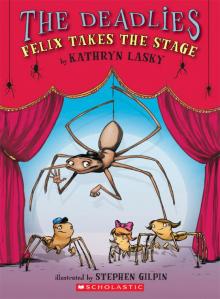 Felix Takes the Stage
Felix Takes the Stage Lucy
Lucy Lone Wolf
Lone Wolf Broken Song
Broken Song The Shattering
The Shattering The Crossing
The Crossing May
May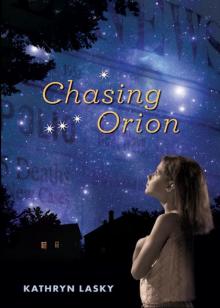 Chasing Orion
Chasing Orion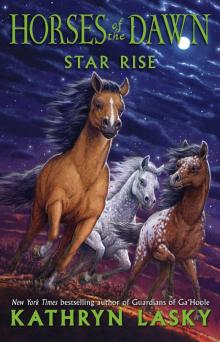 Star Rise
Star Rise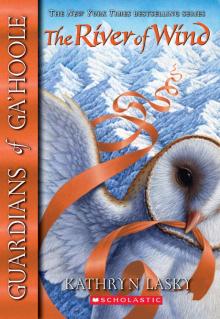 The River of Wind
The River of Wind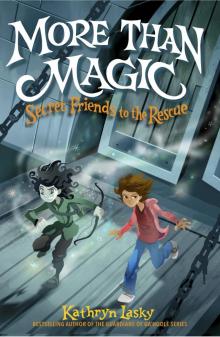 More Than Magic
More Than Magic Born to Rule
Born to Rule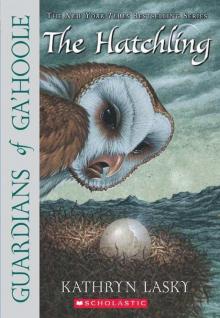 The Hatchling
The Hatchling The Rescue
The Rescue Marie Antoinette: Princess of Versailles, Austria - France, 1769
Marie Antoinette: Princess of Versailles, Austria - France, 1769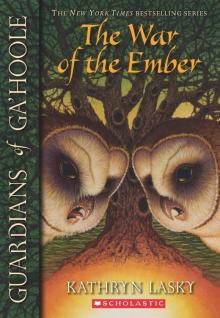 The War of the Ember
The War of the Ember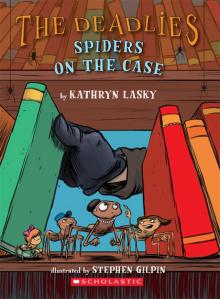 Spiders on the Case
Spiders on the Case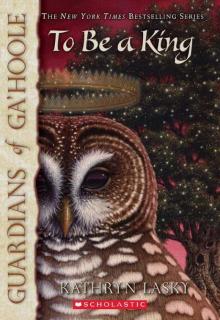 To Be a King
To Be a King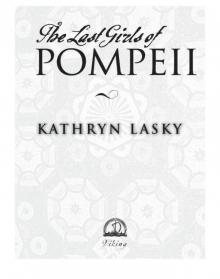 The Last Girls of Pompeii
The Last Girls of Pompeii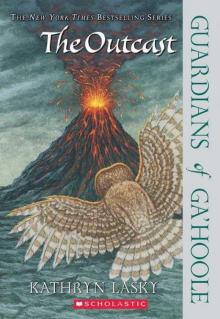 The Outcast
The Outcast Exile
Exile Night Witches
Night Witches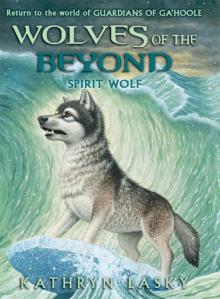 Spirit Wolf
Spirit Wolf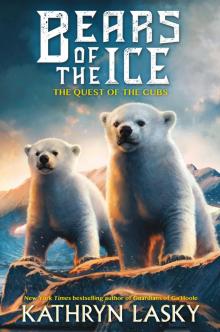 The Quest of the Cubs
The Quest of the Cubs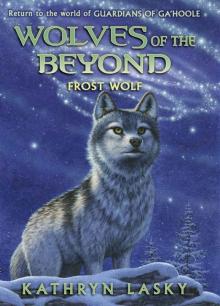 Frost Wolf
Frost Wolf The Keepers of the Keys
The Keepers of the Keys The Extra
The Extra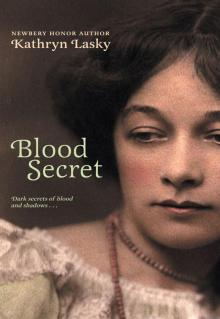 Blood Secret
Blood Secret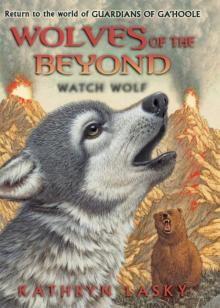 Watch Wolf
Watch Wolf Blazing West, the Journal of Augustus Pelletier, the Lewis and Clark Expedition
Blazing West, the Journal of Augustus Pelletier, the Lewis and Clark Expedition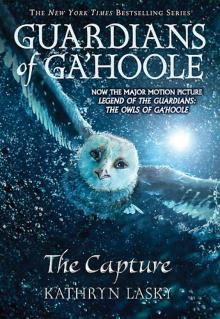 The Capture
The Capture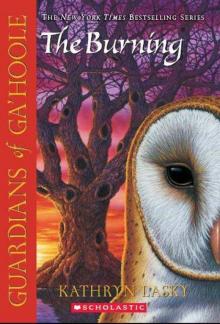 The Burning
The Burning The Journey
The Journey Unicorns? Get Real!
Unicorns? Get Real! The Escape
The Escape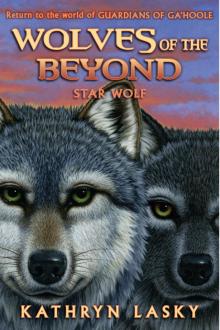 Star Wolf
Star Wolf Ashes
Ashes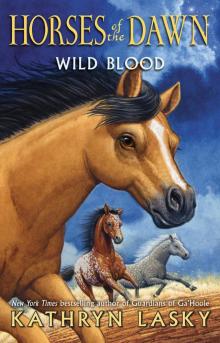 Wild Blood
Wild Blood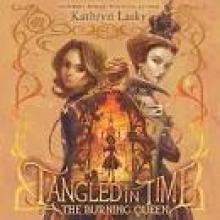 Tangled in Time 2
Tangled in Time 2 The Siege
The Siege Hannah
Hannah Elizabeth
Elizabeth A Journey to the New World
A Journey to the New World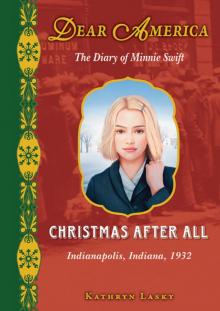 Christmas After All
Christmas After All Mary Queen of Scots
Mary Queen of Scots